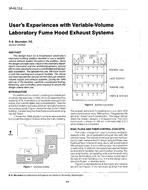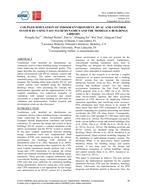Realization of Net Zero Energy Buildings (NZEB) for residential use depends on, among other things, minimizing leakages. However, very airtight houses may have a negative impact on indoor air quality, indoor humidity and thermal comfort. Focusing on ventilation systems becomes a requirement in this situation.
In cold climates mechanical ventilation systems are the state of the art solution. In order to achieve further energy use reduction, the effort must be set on efficient energy recovery from ventilation systems.
In this paper, the focus is set on quasi-counter flow membrane-based heat and mass recovery system for cold climates such as the Norwegian. Their effectiveness crucially depends on the heat and mass transfer process through the membrane and therefore the characteristics of membranes have to be deeply analyzed. To investigate this process, this paper starts with a theoretical study of moisture transfer process through membranes based on a review of available literature. Following to it, and to validate the results of the theoretical analysis; selected types of membranes will be analyzed. The present paper concludes on the selection of the most suitable membrane solution among the tested.
Citation: Cold Climate Conference, 2012
Product Details
- Published:
- 2012
- Number of Pages:
- 8
- File Size:
- 1 file , 540 KB
- Product Code(s):
- D-CCC12-31


